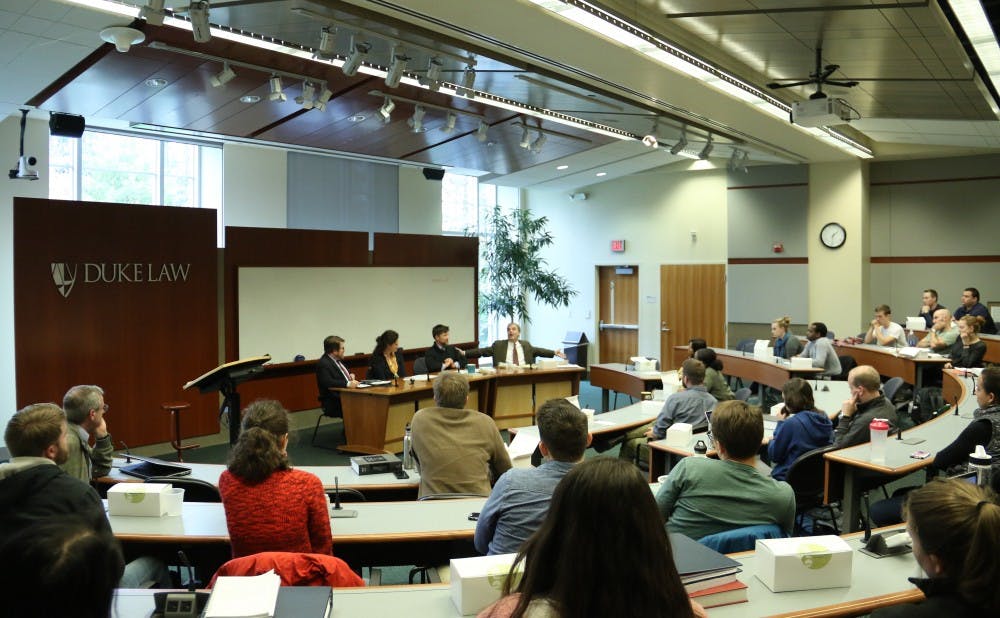Ever wanted to sue the federal government but thought you weren't old enough?
Duke Law School discussed the implications and future of such a case—Juliana v. United States—in which 21 youth plaintiffs sued the federal government for its role in climate change. The case argues that the United States’ policies contribute to climate change and have infringed on future generations’ Fourteenth Amendment rights to life, liberty and property.
“I think we have to look at the Juliana case as political theater. What the plaintiffs are trying to do is use the courts as a forum to change widely held attitudes,” said Jedediah Purdy, Robertson O. Everett professor of law.
He argued that the plaintiffs are challenging what the people in the United States are entitled to and what the responsibility of their government is.
“Political theater of this kind is especially understandable right now as people are operating with a fiercely felt sense of the gap between what is happening now and what needs to happen to avoid a series of environmental disasters,” Purdy said.
Although he thought the case was a legal stretch, Purdy supported the boldness of bringing it to court.
“Many of the environmental statutes and institutions that we now take for granted were only possible because activists came up with radically new ways of talking about relating to or evaluating the natural world in ways that those institutions found impossible at first," he said. "The normal world we live in today was built out of the impossible and utopic demands.”
Ernest Young, Alston and Bird professor of law, had a pessimistic outlook on the the plaintiffs' success.
He talked about an initial issue of the case was its standing, or the capacity to bring the case to court. Because the plaintiffs are bringing this suit on account of all future generations, many of the complaints would be generalized grievances and therefore not allowable, Young explained. To combat this, the plaintiffs brought forth examples of people who have been directly impacted by the results of climate change.
However, he said the plaintiffs aren't seeking damages from the court, but rather an injunctive relief.
“If the Ninth Circuit wants to get rid of [this case], they can say that what happened in the past isn't relevant and that the question is will [the plaintiffs] be subjected to this again, which is a generalized grievance," Young explained. "What makes it hard to get rid of this case is that we have to accept allegations as true at certain stages of the proceedings. We’re not supposed to get rid of [cases] just because we’re skeptical of the causation."
He added that this case could cause the Supreme Court to create more restrictions about what constitutes standing.
Although the general consensus at the panel was that the Juliana case would fail in court, panel members agreed that bringing this suit forward was generating public awareness of climate change. Purdy said that success lies in either a more robust conservative ethic or the creation of institutions that are tasked with speaking on behalf of the youth. He noted that older generations bear the cost of any forward-looking initiative without seeing the benefits.
The Supreme Court recently allowed this case to progress in the Ninth Circuit Court of Appeals. However, the Ninth Circuit then granted part of the Trump administration's motion for a temporary stay Nov. 8.
Get The Chronicle straight to your inbox
Sign up for our weekly newsletter. Cancel at any time.

Maria Morrison was a digital strategy director for The Chronicle's 117th volume. She was previously managing editor for Volume 116.

